Going through Beginner investors remorse is absolutely normal. Everyone has these questions in their mind as a beginner, “how to invest money” or “how to invest in stocks” or “how to invest in real estate” or “how to invest in bitcoin” or the best of all “how to learn how to invest money”. Don’t feel guilty at all. Let’s figure out a way to invest in stocks bitcoin real estate gold. You’ve landed at the right place to start your journey.
“I wish that I invested in Amazon after the Dot com bubble. Why did I miss a sure shot in Tesla last year. I wish I had invested in Bitcoin four years ago before the bull run.”
As beginner investors start their journey into investing, they are clueless and lost and only wish they invested a lot earlier into something that is now giving enormous profits to investors. Sounds familiar? It’s generally fun to discuss that investment that we didn’t make. Let’s figure out a way to invest in stocks bitcoin real estate gold rather than repenting the past.
On the other hand, it is also important to recognize that we missed a golden opportunity to invest but too much fretting about the past is not going to help in any way. Coming to sense and accepting there’s absolutely nothing can you do about it is the sane thing to do.
I’m constantly questioning myself on what to do with my money. As a personal finance blogger, my friends constantly ask me what the best investment is. When I quiz them a lot on their financial position and risk tolerance, they easily get disinterested before I give them the best investment option 😂. People often don’t understand there is no one line answer to this question and depends on a lot of other financial information pertaining to their life. Let’s figure out a detailed plan to invest in stocks bitcoin real estate gold.
If you have up to 10 minutes to read further, I want to help you figure out how to invest your money when you’re feeling lost.
https://www.instagram.com/p/CDDpTspJMlb/
I’m going to assume that you want to get into investing your money. You’ve likely heard from friends or co-workers about how they’re making money from Crypto or Stocks or real estate.
You’re now ready to start investing and want to try your hand at it. You understand that you should be working smart and not hard, making money work for you. You know that you can’t build wealth just by saving every penny.
I want to start with answering this basic question before even getting to the main question
Prerequisites Before Investing Money
1. Never invest money in investment options you don’t understand
If you can’t explain the investment to yourself or don’t know what’s going on, then it is the easiest way to lose money. You worked hard to earn this money. There’s no point in giving it over to something that makes no sense to you.
Understand that investing involves a lot of hard work and patience. There is no “get rich quick” offer. If it was that easy, then why isn’t everyone doing it? Sure, probably 0.01% strike it big on lottery or something else but we are talking about common people like us.
You can eventually get rich if you don’t fall for scams often. Avoid the temptation to jump into every offer to “make money fast.” Famous cliched example is investing into pets.com in 2000. You need to try to understand and invest in stocks bitcoin real estate gold but if you don’t understand then wait.
2. Never invest money that you can’t afford to lose
This is a famous adage in the Cryptocurrency space but it applicable everywhere. If you are investing into risky things like options, futures, forex or Crypto, please make sure you exercise caution and only invest what you afford to lose. Generally accepted risk is 1% of your portfolio
3. Never invest money that is not yours
People tend to use their credit cards for investments and tend to forget that they have to eventually pay this money back. They carry balance hoping their investments will make more return. Credit cards charge a huge 22% APR and no sane investment will make that much return on an annualized basis consistently.
Understand Distinct Asset Options
The next step is to understand different asset classes that you can choose to make your portfolio revolve around. Start early and never put all your eggs in one basket. There is a lot of difference between how we define asset classes.
Many financially literate people classify asset into eight different categories
- Stocks – Equities (or stocks) are proof of ownership in a company. Most stocks list as public companies in major stock exchanges such as New York Stock Exchange or NASDAQ in the USA, or London Stock Exchange in the UK, or National Stock Exchange in India.
Stocks are securities where you hold the stock for a longer period and potentially profit solely from price rise or appreciation in valuation or by collecting free dividends for holding the stock. Generally, Stocks are classified into large cap, medium cap or small cap based on their market capitalization. - Bonds or Secure income instruments – Secure (fixed) income investments helps in securing returns through interest payments. These debenture securities are generally secure and stays in your brokerage account. Bonds are low risk low reward category of investments when compared to stocks. For example, you can buy Fed T-bills or Notes and expect interest income to be paid at regular intervals.
- Cash or money market mutual fund – Holding cash or cash equivalents in money market mutual funds is a norm. The main advantage of this asset class is its liquidity. Make sure your emergency fund is liquid and is one of this asset class.
- Real estate – Real estate is the one of the most illiquid class but provides great defense against price rising or inflation. The fully physical feel of real estate gives people immense pleasure and sense of ownership.
- Futures, Options and other derivatives – This is the derivatives category that includes complex financial products that is based on something else. We have futures, option market as the main product that has both retail and institutional market. There are much further complex products like Collateralized Debt Obligations (CDO), Collateralized Loan Obligations (CLO) etc that mostly only institutional players play.
Derivatives track the price of an original asset and helps traders go long or short on the basis of market direction. For instance, if you want take a position on crude oil, you buy or sell futures contract with a forward expiration time. That makes it a derivative trade. - Cryptocurrencies – Cryptocurrency is the newest asset class that has been in force around just a decade. Bitcoin is the pioneer in cryptocurrency, invented in 2008 by an unknown person or group of people using the pseudonym “Satoshi Nakamoto” and started in 2009 when its implementation was released as open-source software. Every other assets mentioned are centralized but cryptocurrency wants to achieve the same in a decentralized manner.
- Precious Metals – Gold and maybe Silver to an extent, and sometimes other precious metals, are often used as hedges against both inflation and economic downturn. Most of the precious metals in the current world scenario is held in derivatives format, though a lot of people still buy precious metals and store themselves or use other services to store it for them, as hedge.
- REITs – Real Estate Investment Trust, in short for REIT, is a real estate company that owns and operates rentals or renovation or funds the project to fetch yields on their investment. REITs own a combination of residential apartment buildings or single family homes to commercial RE involving offices or warehouses or shopping malls. REIT gives you partial ownership in these highly costly assets.
Now that you’ve read about different asset classes and understand the choices you have, read on to understand how and where you should invest your money.
How Should You Invest Your Money?
I’m so happy that you want to learn about money and investing money. Don’t be guilty if you don’t know many options listed. Everyone starts as a beginner. Most “experts” are still just guessing based on some half baked experience and data. You’re just missing that experience.
We all have different skills and earn our keep through different means. But, Anyone who inherits a huge stack of money in their early life will not understand the difficulty. Don’t let them tell you what to invest in because their risk taking capacity might be different than yours. After all, money comes easy for them.
On the other hand, for normal people like us, it will take years to get sizable amount of capital. Never easy to risk your own hard-earned money. It maybe just easier to tell someone else what to do with their money.
High Yield Savings Account
This is like a game. You start with nothing and slowly build up your character, as you complete certain missions. You have to build yourself up first. Don’t go borrowing money to make an investment when you haven’t saved anything.
It is important to build up some savings, before you think about making serious investments. The good news is that you will have time to research investments that match your risk profile, as you get your saving up.
US Only : It is difficult to maintain the high yield savings account interest rate list up to date, so I’m going to ask you to take a look at Doctor of Credit for the list. This is a set it up and forget method mostly.
Here are some International high yield Savings accounts for anyone to open, obviously with hoops to jump through, maintained by Nomad Capitalist.
You need to keep researching about investing while you’re saving, which will indirectly help you save more too.
Build Yourself And Your Business
Now that you’re saving some money, you would be naturally inclined to know what’s next.
The best investment you can do is in yourself, which becomes a flywheel and creates more money for you in the future. Save more money and invest in fruitful things to have an early retirement in leisure.
Watch how your confidence grows as your net worth increases and see how it even positively affects your work. When you invest in yourself or your business and make more money, you now have more discretionary money to put towards your savings or other investments or goals in life.
https://www.instagram.com/p/CC5WmU6J627/
If you want the steps involved, it goes like this
- Make money through various sources like 9 to 5, side hustle and business
- Save money with a high savings rate and increase your net worth
- Invest into yourself
- Make more money and increase savings account
- Research investments that match your risk profile
- Make strategic investments
- Diversify your income sources through profits of your investments
Here are some ways you can look into making more money (I will write these articles and link soon)
- How to travel for free using Credit Card Churning?
- Do I make more on my Side Hustles than Salary?
- How to save huge on your necessities purchase?
Up until this point, everything is mandatory and everyone needs to do. When we further go down in each asset class, it depends on the asset class you’re comfortable with and your acceptable risk levels.
Stock Market
We all know what the stock market is all about. We don’t really know how to invest in the market though.
One thing that people do wrong is excessively watching the news. The action actually happens based on the chart patterns and the cycle (boom or bust) we are in.
Show me the charts and I will tell you the news. Be happy with a percentage of a move – Bernard Baruch
I would ask you to get your feet wet by having a demo account, track and trade stocks for fun for a few weeks. Try to read charts (learn RSI, MACD, EMA, SMA, Fibonacci retracement levels, Elliot waves) , study the news, and see if you’re even into this kind of lifestyle. Most of them that trade lose money but you’re if the lucky 10% like me that makes profits, then you’ll amass a lot of money quickly.
If you want to get into day trading then please ensure that you have adequate time, money, and flexibility or know just set with auto bots based on market movement.
If you don’t feel comfortable with trading, the best thing to do is invest and sit quiet while it appreciates over time. Don’t do this mother of all investing mistakes if you don’t trade.
To simplify, there are three things you can do within stocks
- Trade stocks regularly and make huge profits if you’re smart
- Invest in stocks and let it grow over time with dividends and price appreciation
- Use Robo Adviser to invest on your behalf
- Work with a personal financial advisor to make your investments
What is a Stock Market?
A stock market is a place or medium where investors meet to buy and sell shares. Markets used to be physical places and there were trading floors in New York, London, Tokyo and Frankfurt where prices for stocks were set in an ongoing live auction.
Most exchanges have done away with the physical trading floors now that majority of bids to buy and sell stocks are made electronically. A stock market broker helps you place an order with these global electronic markets.

You can find individual stocks by their “ticker symbols”. For Example, let’s see the top technology shares ticker symbols. We all know these tech behemoths : FB for Facebook, AAPL for Apple, NFLX for Netflix, and GOOG for Alphabet/Google.
Prices on markets move very quickly, based on latest news, investor sentiment and earnings made by the company. It is difficult to watch so many individual stocks.
So, Market watchers and experts like to track the stock market’s overall movement by watching three major indices. The Dow Jones Industrial Average (DJIA), or just Dow, was the first broad index of stocks and tracks 30 leading U.S. companies. The S&P 500 follows the 500 biggest, most valuable U.S. companies. The Nasdaq Composite measures only companies listed on the Nasdaq with heavy exposure to high growth and technology driven companies.
Investing in Bonds
Many folks invest in bond to have a safety net and hedge to their stock portfolio. Good bonds provide completely predictable and solid return. Bonds are so reliable with fixed income to keep a balance in your investment portfolio, especially when times are volatile like the Pandemic we are in, at the time of writing.
Do you understand what role bonds will play in your investment strategy? Get a hang of the why and how much, before you take action. Hopefully, this will help you build a well thought out portfolio with a crystal clear strategy comprising many assets, of which bonds are a part.
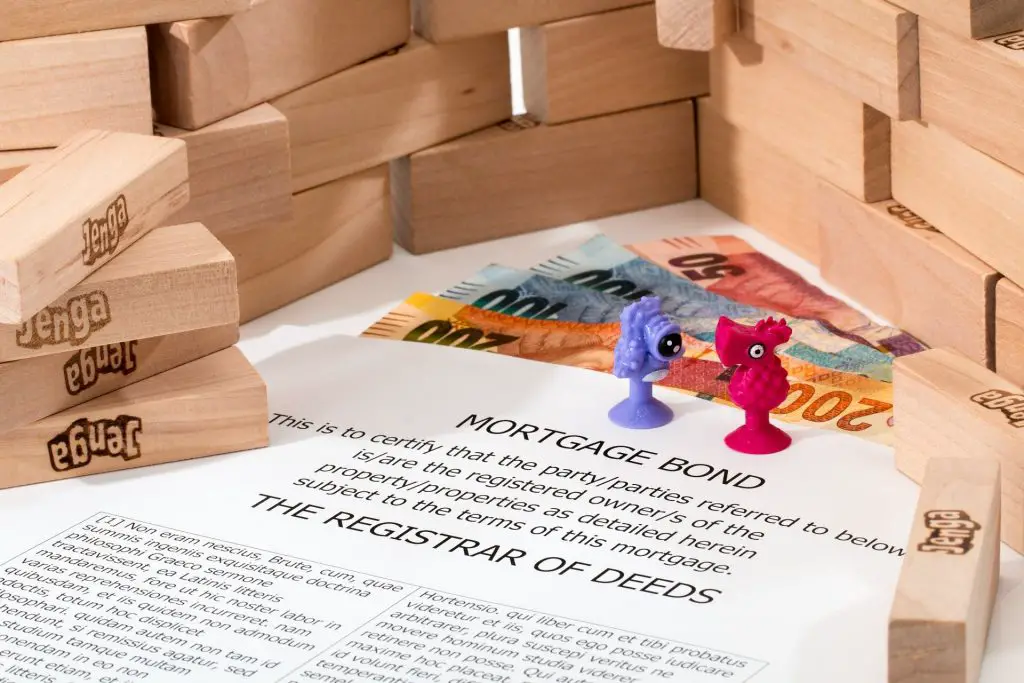
What Is a Bond?
Bond is a debt or loan on which you invest and get fixed income according to the bond terms. As a bond holder, you offer your investment as a loan to the company or government or government entities for the promise of getting interest on that investment over time. You need to understand that bond coupons actually determine the interest payments.
All organizations, be it a governmental one or a private Corp, announces bonds issuance to meet their financial needs on future projects. Bonds are generally useful to improve the productivity of the company by raising capital for doubling down on the core strategy to be more profitable. Or, it may be useful to buy upgrades in equipments and machines and increase output.
What is the difference between stocks and bonds?
If you participate in the issuance and buy the bond, you now evolve into a creditor for the company or government. Let’s make you fully understand the difference of how bonds work and how stocks work.
If you buy stock of a particular company, you now have a partial ownership of the company. You will, in most cases, be a minority shareholder. Stock gives you real partial ownership. You get to enjoy the company’s profits, distributed to you through dividends or through the appreciation in stock price.
If you expect the same from bonds, you are in for a disappointment. As a creditor of the company, they don’t give you share the company profit with you. How much ever profit or loss the company makes, you will have a guarantee to get your interest payments. This is, unless the company defaults on the bond. People buy Bonds for stability and the guarantee of a certain amount at the end of the term.
Bond Terminologies
- Issue Period – Issue period is the bond’s first sale date
- Maturity Date – Bonds mature with principal to be paid back on a certain date. Bonds issuance happens only for a particular period of time and the bond matures when the principal amount becomes due at the end of maturity period
- Bond Coupons – Interest payments happen as per agreement of the bond in regular intervals until the maturity date. Bond coupons refers to the amount of interest rate that will be paid to the bond holder, expressed mostly in annualized terms.
We still use the old terminology of bond coupon rate. The story behind this dates back to pre-electronization of trades era. In those times, bondholders collected paper certificates as proof of ownership of bonds, and those paper certificates actually bore coupons on them, showing the interest rate and frequency of payments.
Once the date for coupon comes, bondholder has to snail mail the coupon to the company. In turn, the company processes the interest payment and sends the physical check.
In the electronic era, everything happens within a second through automation. Once the coupon date arrives, you will see the credit of interest payment in your brokerage account or bank account instantly.
How Bonds Pay Interest?
The company that issues bonds estimates a rate where the potential creditors will be willing to take the risk and buy the bonds. The bond coupon rate is a function of the bond market conditions at that instant, fed funds rate, company’s debt to equity ratio, ability to service the debt, track record in servicing debt and the bond maturity date.
If you want to just look at what you will receive as interest payments, then go for coupon rate. It will be an annualized percentage term instead of an absolute number.
For example, if you buy a $10K bond that comes with a 4% annual coupon (which pays quarterly), you ought to get $100 every quarter, totaling $400 every year in interest payments.
Types of Bonds
- Floating interest rate bond
- Fixed interest rate bond
- Zero Coupon bond
Fixed interest rate bond has a constant interest rate from the issue date till the maturity date of the bond.
Floating interest rates bond have interest rates that oscillates or changes over time. For example, think of long term treasury bonds that have variable rates and it moves according to the fed funds rate. Some bonds can also be attached to other indices like the LIBOR rate. They generally add 100 basis points on top of LIBOR. However, the variable part is only the LIBOR rate and you will get the additional 100 bps always on top of LIBOR for the entirety of the bond period.
Zero Coupon bonds don’t get into interest payments concept. Instead, they offer a up front discount and upon maturity, the bond holder gets the whole value of the bond. For example, there maybe some bonds where you pay $10K that will give you $20K after 10 years. Consider the difference or growth in investment as the interest payment. Also, there are bond mutual funds built on top of these bonds like PIMCO 25 Year Treasury Index zero Coupon bond ZROZ,
Cash or Cash equivalent
Cash is one of the straightforward assets that needs no explanation. You exchange services in order to earn money. Money may be physical or digital cash in your bank account. We’ve already seen about High Yield Savings Account but haven’t seen yet about cash equivalents.
You can invest in Money Market Funds that helps you hold your funds in your investment account before you make your actual investments into other assets. It pays you around the same level of high yield savings account but usually slightly lower.
Money market funds, otherwise called money market mutual funds, are open-ended mutual funds that invest in short term securities. This asset class is typically chosen to preserve cash and not to earn huge returns. Money market funds have a low risk with modest returns and helps you beat inflation. Don’t expect to become wealthy off of money market funds, that never happens. The main focus is to park cash that is going soon back into the market.
What Is a Money Market Fund and How Does It Work?
Money market funds are open-ended mutual funds. Fund managers pool the funds and invest in really short term debt securities, with low or no risk, along with low or no volatility.
These funds typically trade at a $1 per share net asset value (NAV). When the money market fund’s value begins to exceed the $1-per-share benchmark, funds will often distribute the amount over the benchmark, net of fees, in the form of a dividend.
Money market funds pay lower interest rates just like any other low risk low reward asset class. It just helps investors diversify, reliably earn interest while waiting to invest and stability with no volatility. You may use money market funds as emergency funds. Please check how fast the money can reach you, from your investment account, before you take the leap.
Money market funds have high stability that many consider them as safe as cash, but that’s not exactly true. Do not expect the money in your money market funds to be protected by FDIC insurance.
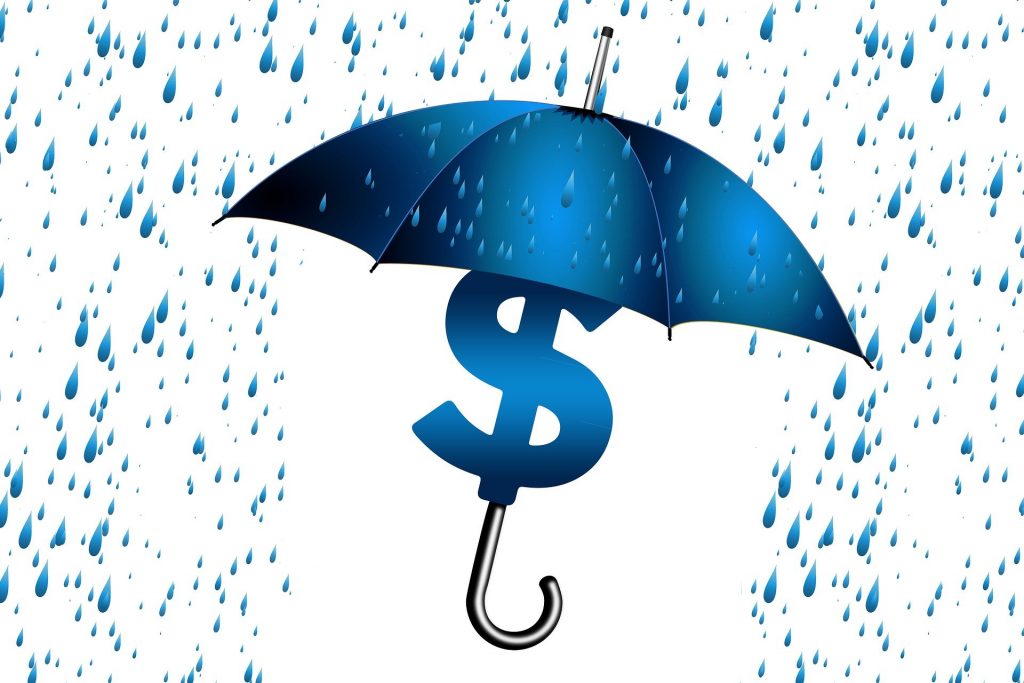
As we said, money market funds are not 100% safe and breaking the buck is an event that happens when funds fall below the $1-per-share benchmark. The benchmark never breaks excepts for rare occasions like the “great financial crisis” of 2008. Lehman Brothers declared bankruptcy. The banks that were “too big to fail” were failing suddenly. Financial meltdown is before our eyes. AIG, with all banks as clients, was in a precarious shape. Then, the Fed and Hank magic happened.
The hue and cry in the market caused some money market funds to fall to 97 cents per share. The government and Fed had to step in and insure all money market funds. Remember, no FDIC guarantee but government can and will step in, in times of crisis.
Real Estate Investing
Real estate provides great protection against inflation and its tangible nature gives people immense pleasure and sense of ownership. Just before you enter into investing in real estate, know that you are in it for long term and it is one of the most illiquid asset class.
What is Real Estate?
Real estate consists of land, beautiful buildings built on a land and any other tangible things of value in the periphery of property limits.
We can explain real estate by broadly classifying it into one of the 4 property types
- Residential properties has people who choose them as primary place to reside. It includes anything from a condo, town house or a single family home. In some rare cases, it can also include people doing airbnb houses or rentals for vacation purpose.
- Commercial properties will have commercial business buildings that conduct business activities to generate income. It includes shopping malls, office campuses, high end business accommodations, restaurants etc.
- Industrial properties will encompass manufacturing structures that produce value by creating a product and selling to people. This property class includes large scale factories, manufacturing units and maybe even wholesale warehouses. Actual value adding goods production from the raw material happens in industrial properties.
- Land properties has building or non-building structures that are of productive value and appreciate over time. It includes vacant lying land, green farms and posh ranches.

What Do You Need To Know About Real Estate Market?
The collection of all properties available for sale in a given area comprises the whole real estate market. Because of large economic forces that influences the spending pattern and boom and bust cycles, there are times when these properties have rise in value (or fall) at the same time. This what people mean when they say the market is up (or down). Not all properties go up in value but the median neighborhood value could go up by a few properties renovation etc.
The housing market is a segment of the real estate market that consists of residential properties only. Trends in the housing market are a leading indicator to provide a measure on general welfare. General public welfare is measured in terms of home ownership that constitutes a core part of “American Dream”.
What Do Real Estate Agents Do?
Real estate agents are professionals that help people buy and sell homes by checking the open listings on MLS in their neighborhood of expertise, ensuring any transaction follows local laws and regulations, and negotiating on behalf of their client.
A buyer’s agent represents people seeking to purchase property. A listing agent represents people seeking to sell property. Both these agents play an important role in making a real estate transaction change hands smoothly.
How Does The Real Estate Industry Work End to End?
- Homeowner and listing agent enter contract for the sale of the home
- Listing agent advertises the home on the local Multiple Listings Service (MLS)
- Buyer’s agent finds home and inquires about it for his potential buyers or clients
- Listing agent provides information and showing
- Listing agent and buyer’s agent enter negotiations for sale
- Buyers and sellers agree to final price
- Agents ensure the legality of the sale
- Sale closed and commission paid
Futures, Options and Derivatives
What is a futures contract?
When you enter into futures contract, you have an obligation to buy or sell the underlying asset for a particular price at a particular date. It’s a financially bound agreement. In the past, futures only dealt with raw physical commodities such as gold, meat, oil or other physical goods that held value.
After the electronic trade era, futures contracts now expands to cover all assets that can be traded (with or without real actual value). Stocks, bonds and cryptocurrencies naturally have their own futures markets. Cryptocurrency is a high growth market currently but stocks and bonds have great liquidity.
Ingredients of Futures Contract
The following are the main ingredients of the Futures contracts
- Direction of Trade – You agree to buy the asset on a date in the future, if you go long. You agree to sell the asset on a date in the future, if you buy short
- Strike Price – The price at which the asset is actually bought or sold
- Date of Expiry – The date in the future on which the actual transaction will change hands
- Amount- The amount of contracts that you will trade on a date in the future
- Asset – The asset you are actually trading for, in the future
- Type of Settlement – There are two types of trade settlement. You can trade for either physical trades or cash trades.
Physical trade settlement makes you buy or sell physical asset. For example, if you buy trade oil futures in physical settlement, you take the crude oil delivery at a crude oil field on the date of expiry of the contract. You have the right to dispose contract any time before expiry to avoid taking physical delivery. This is exactly the reason oil touched negative rates for the first time ever in Jun 2020.
On the contrary, a cash trade settlement means you do not take any kind of delivery that consists of physical goods. The only thing that changes hands at the end of expiry date and trade execution is just cash in digital format.
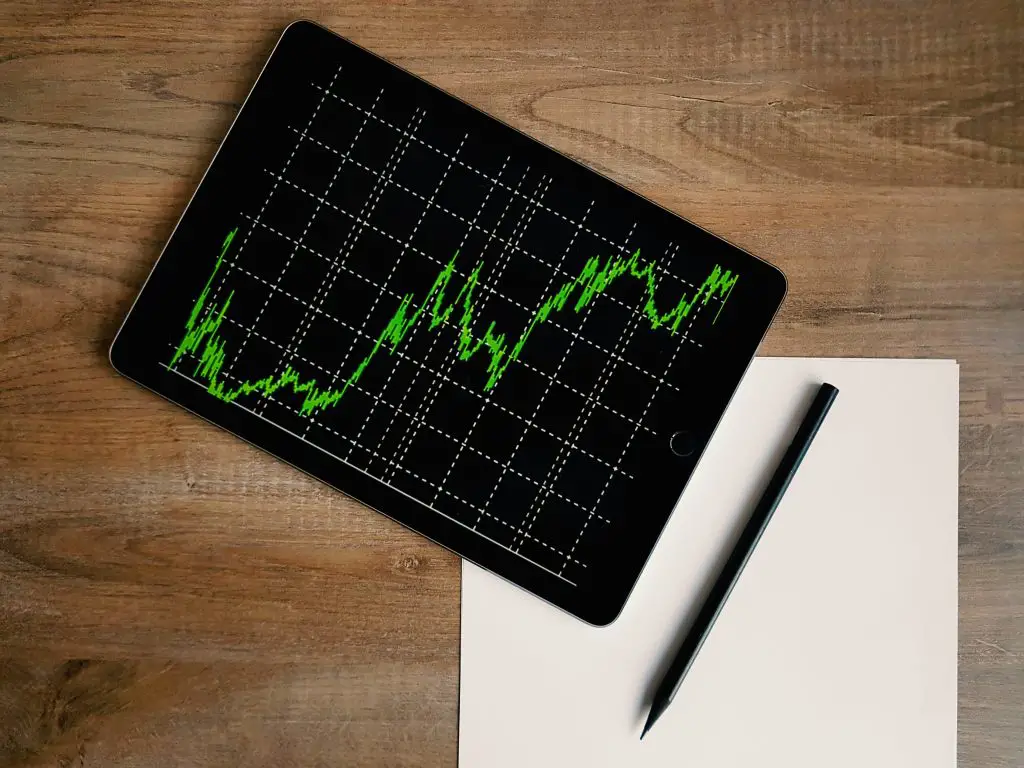
What are Options?
An option is a contract gives the right but not an obligation to an investor to buy or sell an underlying asset at a predetermined price over a certain period of time. The asset can be an individual security or an index. Options market execute the process of buying and selling options.
Buying an option that allows you to buy shares at a later time is the call option, whereas buying an option that allows you to sell shares at a later time is the put option.
Remember, we were saying owning a stock means owning a portion of a company. However, when you buy options, they do not represent ownership in a company. Although, futures use contracts just like options do, options are lower risk since you can walk away from an option contract at any point. Premium is the option price and is a portion of the underlying asset. Buying options is basically betting on stocks to go up, down or to hedge a trading position in the market with just risking the premiums, if you do it right.
Options Terminologies
- Strike Price – The price at which you agree to buy the underlying security via the option
- Premium – The fee you pay for buying that option contract is called the premium
- Direction – Buy or Sell Call or Put options
When determining the strike price, you are betting that the asset will go up or down in price. The price you are paying for that bet is the premium, which is a percentage of the value of that asset.
Call Options
A call option is a contract that gives the investor the right to buy a certain amount of shares of a certain security or commodity at a specified price over a certain amount of time.
If you’re buying a call option, it means you want the stock to go up in price so that you can make a profit off of your contract by exercising your right to buy those stocks or sell the stock at the higher premium and pocket the difference. Similarly, if you sell a Call option, you expect the stock price to go down and profit off of your contract.
Put Options
A put option is a contract that gives the investor the right to sell a certain amount of shares of a certain stock at a specified price over a certain amount of time.
Generally, when experts trade, they don’t perform a simple naked Call or Put buy or sell. Options are high risk and you can be experience huge losses, if you mess it up.
Follow the experts and start to learn to use advanced option trading strategies like Credit Spread options strategy, Debit Spread or Iron Condor strategy or other complex advanced strategies to limit your downside and increase upside. This is traditionally called as “Downside Capture” in investor circle. Learn to trade in a demo account for a month before actually venturing into Futures or Options markets.
I have to agree that I’m not a true expert on Futures and Options. That’s why, this section is going to be short. I do not believe in showing myself as a “know it all”. Thinkorswim demo account with papermoney is where I practice my trades. My winning trade % is not more than 60%. I will venture into real markets only after I am confident with my strategies. Be smart money, it’s a zero sum game!
Cryptocurrencies
Cryptocurrency is a digital currency asset on the blockchain helping transfer value faster and in a decentralized fashion. Since it works on decentralization, it is based on mathematical techniques, rather than trusting any third party. It generally uses undecipherable secure cryptographical encryption methods, in the form of “proof of work” or “proof of stake”. Most of the assets are moving from proof of work to proof of stake since the electricity consumption to solve the hash (mathematical proof) is hitting the roof.
The main advantage of Cryptocurrencies is that security is ensured by distributing it with different clients and computers across the internet. Many cryptocurrencies run on top of decentralization with blockchain technology underpinning the network security. It means every new block is mathematically proved using a complex mathematical hash or proof by the winner miner and the same is propogated across the network and other nodes verify the proof in a decentralized manner. Thus, confirmations pass through the network to achieve consensus and bad actors face a penalty.
Therefore, a cryptocurrency is a digital currency that is strongly secured by cryptography and distributed across multiple nodes or computers. Even if someone acts bad, the truth will come out in terms of consensus from majority nodes. Quantum Computing might be able to break the blockchain technology proofs. But, projects have already started research on how to be quantum resistant, before quantum computing becomes mainstream.
It also has really low fee to do quick transactions, due to its decentralization. Of course, the blockchain could be spammed with low value transactions and network fee might rise. But, we are talking about most normal situations. Cryptocurrencies rely on multiple nodes to verify the legitimacy of transactions, thus ensuring decentralization. This is totally unlike their centralized bank counterparts.
DeFi is becoming a big phenomenon that could replace the banks in the future. Master slave architecture in centralized systems like banks are replaced with decentralized crypto or tokens. Every node has same access to fintech services. Everyone is equal and work the same way towards securing the network.
Most of you would have heard about the top 2 Cryptocurrencies by market cap, Bitcoin and Ethereum.
Cryptocurrencies are a high risk high reward type of assets. Don’t invest more than 1% of your portfolio if you don’t understand the asset class. Cryptocurrencies are the newest form of asset that has no Government control, easier to transact and store than gold, so it could take away hedge money investments in the future from Gold. Cryptocurrencies (or especially Bitcoin), have been around for a maximum of just a decade, so be careful when you invest. If you are someone who can’t stomach high volatility, then this asset class is not for you.
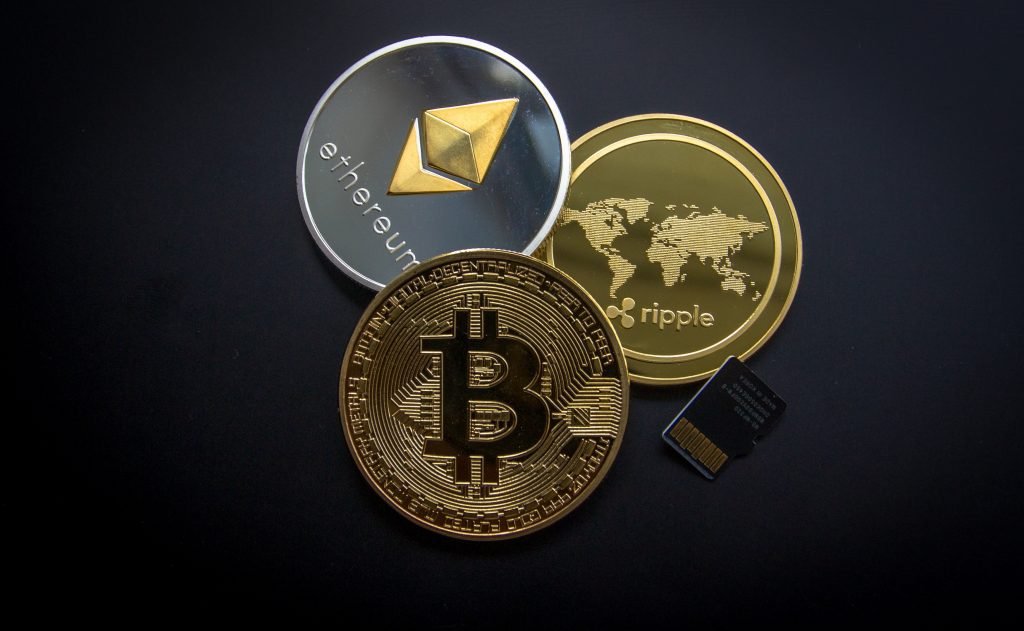
However, when you become an expert, you can tame any asset and make it work for you. My highest share of profits personally comes from this asset class. I have put in hard work in the last 5 years to understand it like the back of my hand.
Things are just heating up for Cryptocurrencies
- Official governmental regulation in US coming soon
- Office of the Comptroller of the Currency allowing banks to Custody Crypto for Customers
- Major payment companies like Visa and Mastercard refreshing their Cryptocurrency approach
- Microstrategy betting a huge $250 billion in Bitcoin as part of its capital allocation strategy.
HODL your crypto and I’ll meet you on the moon in a few years 😎
Precious Metals
We have a strong fiat currency in US dollar, backed by the faith of the US Government. With a paper money system in place, why would you even invest in precious metals? While we cannot predict exactly what could happen to our economy and when it could happen, but several forms of paper money or fiat currency have collapsed in various cultures over the centuries. Gold, silver, and other metals have remained universally valuable commodities since almost the start of humanity.
People often view physical metals as a safe haven investment. It is common to see an increase in demand during times of economic or political instability or war time. When normal asset classes go bonkers, precious metals is the shade on a scorching summer day.

Precious metals offer insurance against inflation, not literally but figuratively. It can also be a good store of value. You cannot create more metals than what already exists, so they cannot be inflated. I recommend owning physical metals which helps diversify your portfolio and adds more investment security.
10. REIT
REIT expands to real estate investment trust. It is one of the hot assets that people want to invest in because they can avoid landlord duties and still get to gain from owning partial shares in the real estate. REITs are more useful and preferable with investors who are in the process of maxing out other other asset classes (stocks, bonds and mutual funds) and want to diversify with exposure to real estate. The first REIT in the US is American Realty Trust in 1961 under President Eisenhower. REITs are generally private companies that either operate or just invest in real estate projects that produce income through debt interest payments or appreciation or rental yields.
How do REITs work?
Real estate investment trusts allow an individual to own partial equity in a huge real estate company that invests in multiple classes of real estate projects. This helps individual investors diversify their real estate portfolio and be free from concentration risk, with their small purchasing power.
REIT needs to follow certain IRS guidelines, which is exactly why REITs are of high value
-
REITs have to distribute at least 90% of their income (taxable) to the REIT holders in dividends form every year. This makes it a compelling medium of investment for investors.
-
Can not just goof up with the raised capital. Have to invest a minimum of 75% capital into real estate projects.
-
Be able to generate a minimum of 75% income from their real estate investments
-
At least boast 100 different REIT holders at the end of 12 month mark
-
Make sure not a majority of shares (>50%) is owned by less than 5 investors in the last 6 months
By adhering to the above stringent rules, REITs have more capital at their disposal to invest into real estate. They enjoy not paying normal corporate tax in exchange for meeting the rules. Thus, they can pump much more into real estate market. It creates a win-win situation for both consumers and the REIT company.
Fundrise is an excellent REIT company that has a great track record. I heavily recommend it for new investors. It is easy to start with and doesn’t require you to know much. I have already been with them for 2 years and have got consistent income from them always.
You just choose if you want Supplemental Income, Balanced Investing or Long-Term Growth. Supplemental income means more debt and less equity. Balanced investing means 50/50 debt and equity. Long term growth includes less debt and high equity. Fundrise takes care of the rest in your portfolio. It takes less than 2 minutes to start and finish investing.
One of the best publicly traded alternative is the monthly dividend REIT company Realty Income.
What is the process for investing your money?

Begin saving up
You can’t do much without any money in the bank. Get yourself up and running to save more after you start.
How do you go about saving up?
- Work
- Pay yourself first
- Increase your income
- Cut back on expenses
- Keep on making more money
- Save more and increase saving rate
- Start exploring how to invest in stocks bitcoin real estate gold
This whole personal finance thing starts off pretty boring. It gets exciting when your net worth increases.
Deep dive about the investment
As you’re working, you’re spending your break time to look over investments. There might be many gotchas that you might be ignoring and investing if you don’t DYOR.
Consider doing the below steps
- Track any and all assets from the above list
- Create a demo account if possible
- Ask questions in forums and Reddit
- Study the experts
- Diversify to invest in stocks bitcoin real estate gold
This is the time to learn everything about the best investment moves. When you have the money, this will enable you to make smart decisions. You need to know in and out, what you’re getting into, learn the risks, understand the gotchas or drawbacks.
Speak to real experts
Can you reach out to some who’s making money with what you want to get into?
I asked some of my buddies who are experts in their own field before starting something. This helped me shorten my learning time and channelize my thoughts on the right path with efficiency.
You have to get answers from real people, so that you’re not just guessing or losing time. You have to find people who are actually making money and take their advice to invest in stocks bitcoin real estate gold
Decide the asset class to invest and act
I started off with mutual funds as my first investment right out of college, then I got into stocks and then invested into Cryptocurrency and now I’m investing into CryptoandFire. Your business is an asset too and you might want to grow it to get royalty income later.
Make a decision on what you want to invest in and make it happen. Don’t be a thinker, be a doer. You can start slow and then take more risks as you feel more comfortable. Last but not least, understand that there is nothing wrong in chasing wealth.
https://www.instagram.com/p/CC0MBYIJjuj/
Last Step – Early Retirement.
Are you planning for your retirement? Do you want to work forever?
I always wanted to retire early. This is a completely optional step for readers. I started planning for retirement before I even turned 23. The concept of owning my own time and thus having my own freedom allures me towards FIRE movement
I am not smart. Just curious and try to learn as much as possible outside of my day job. I see a lot of people working retail stores or other jobs even after 65. While I totally respect them and thank them for doing an excellent job, I never want to work beyond 35. When I say I don’t want to work, it doesn’t mean I don’t want to do absolutely anything. It just means I don’t want to work for money anymore. I invest in stocks bitcoin real estate gold and it generates more dividend than my living expenses.
I have a lot of projects that I want to accomplish before even I’m closer to early retirement and see the value. Make sure it is economically viable to pursue the path while also not reducing my FIRE number and goal. Have a plan to do things you love and don’t stuck working for money forever!
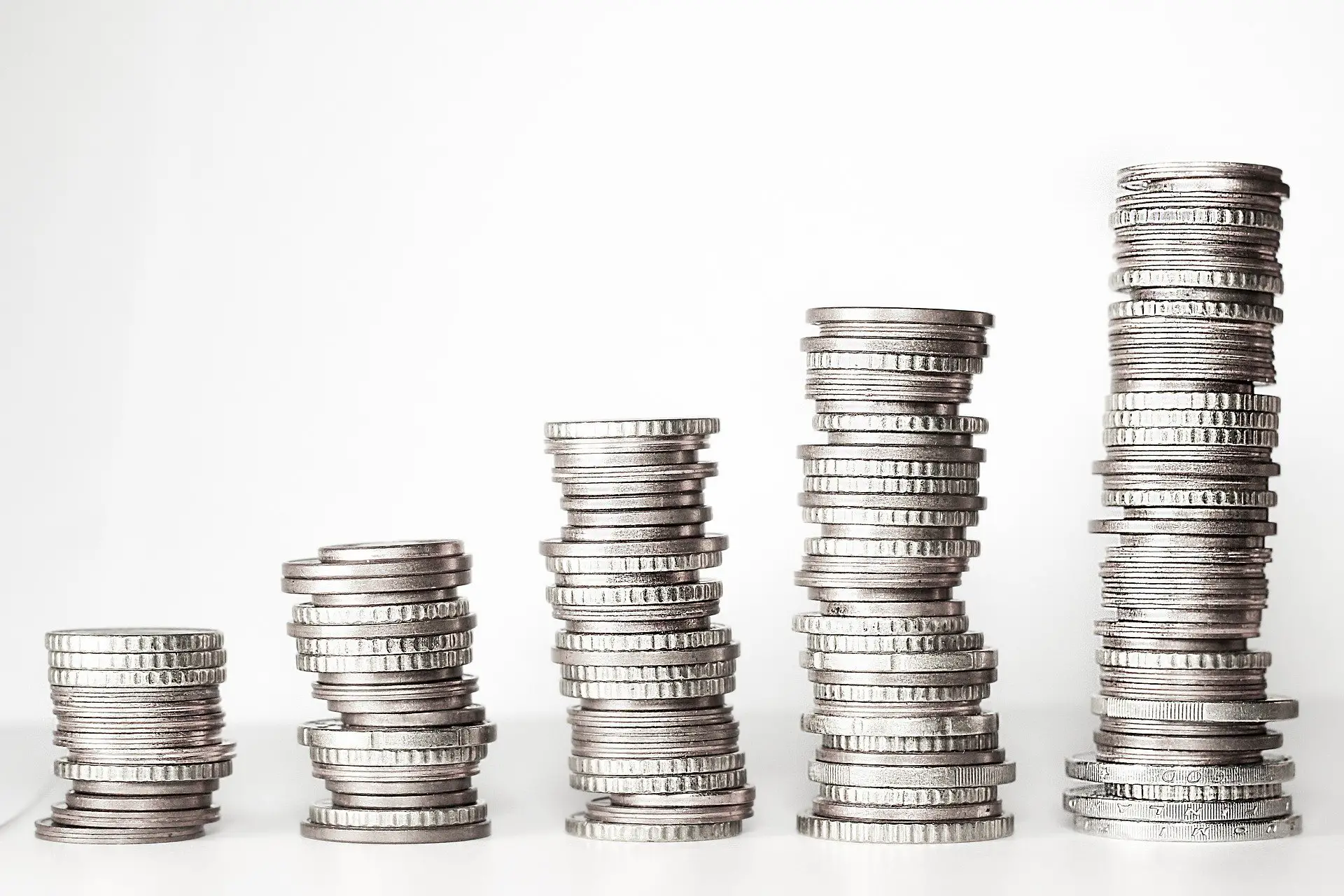
I think this is among the most significant info for me. Glad I am reading your article on Thanksgiving. I have learnt so much on investing in stocks, gold and bitcoin from here.
Thankful for having great readers who appreciate quality investing content
This really answered all different asset classes to invest in, thank you!
Glad to assist you in investing education!